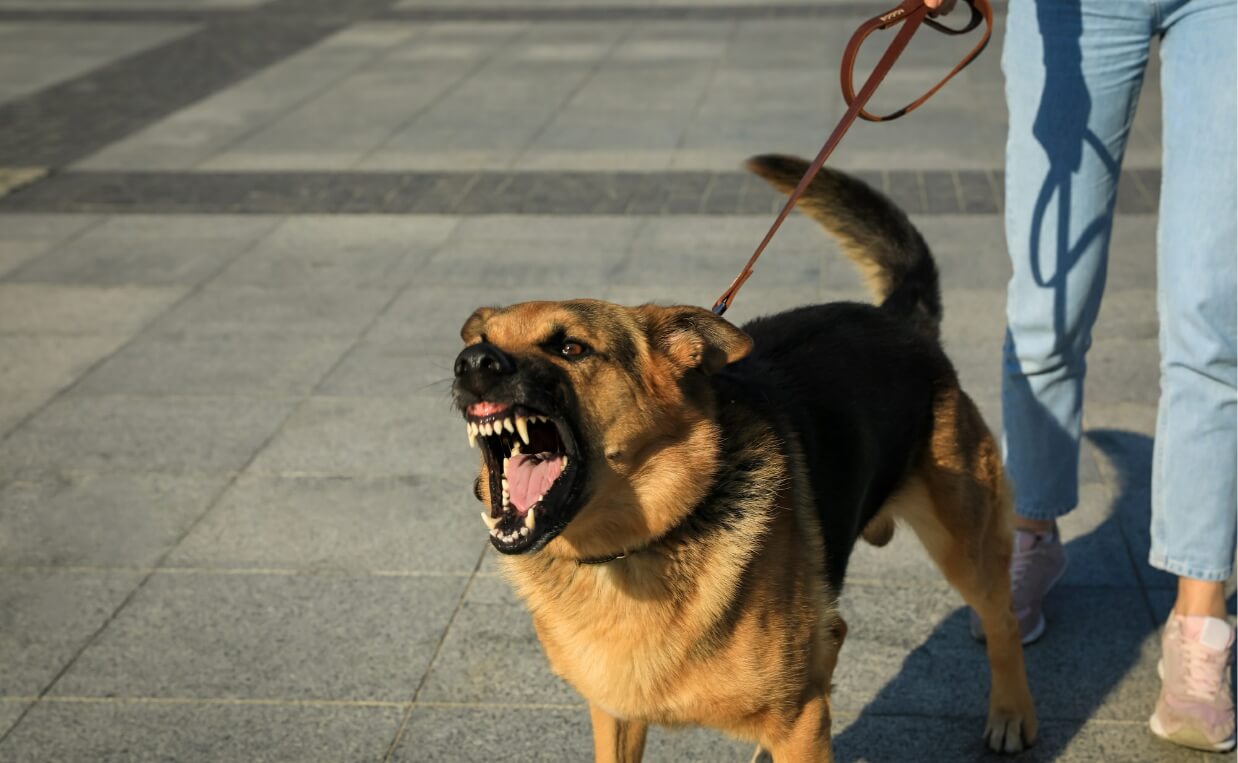
It can be difficult to imagine your sweet, snuggly pup suddenly becoming aggressive and biting you or someone else. But the truth is all dogs are capable of biting.
Every year, there are more than 4.5 million dog bite incidents in the United States. About 800,000 people seek medical attention for dog bites annually; about half of all these are children. Unfortunately, dog bites aren’t as rare as you may think and sometimes you may be surprised by a bite from your own dog.
Dog bites are a global health concern causing physical, mental and financial strain for individuals, health care systems and businesses. They also affect canine welfare as many dogs are relinquished to shelters or euthanized for biting, even if the incident was prompted by human behavior.
Why Do Dogs Bite?
Understanding why dogs bite and how to keep yourself and your family safe is important. Here are six common reasons dogs bite.
-
Mouthing
Puppies explore the world with their mouths. Usually, puppies learn bite inhibition when they are young but if they were taken from their litter too young or didn’t have any littermates they may not learn to control their biting. Read more: How to Train Your Puppy to Stop Biting
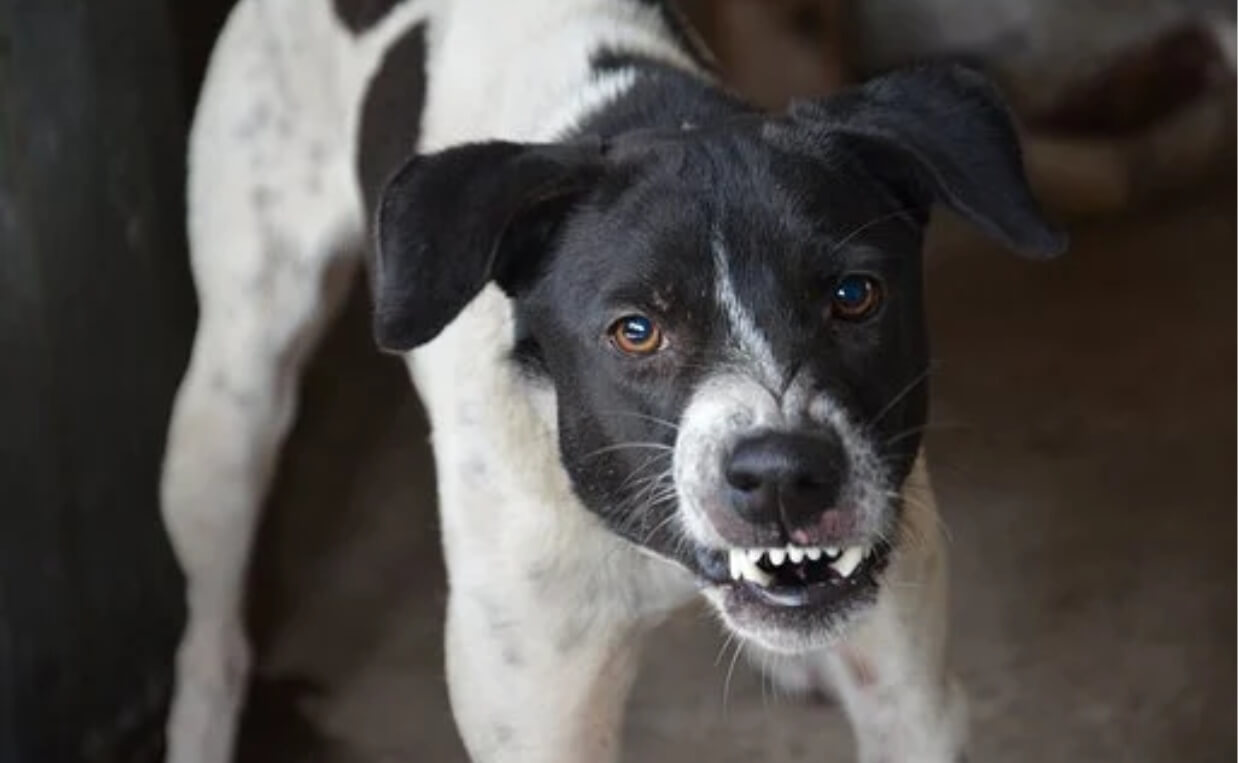
-
Pain
Dogs are good at hiding their pain but may lash out if a sensitive spot is touched. Signs your dog is in pain include licking incessantly, whimpering, whining, growling, altered breathing, changes in sleeping, eating or drinking and aggressive behavior. If your dog is displaying symptoms of pain, take your dog to the vet right away to determine the cause of the pain.
-
Prey drive
Many dogs were bred to hunt and may become overexcited at play time. For them, a game of tug may set in motion their natural instinct to kill and if your hand gets in the way, so be it. If your dog gets overly stimulated by games like tug of war, try switching to other games like fetch. Read more: 10 Fun Games to Play With Your Dog to Prevent Boredom
-
Possessiveness
Also called resource guarding, some dogs feel the need to protect food, bones or toys at all costs. This is very dangerous because it isn’t an accidental action. Resource guarding takes a lot of training to get under control.
-
Maternal instinct
If your dog has recently given birth to puppies she may have a strong maternal protection instinct. A mother dog may bite if she feels her puppies are being threatened, even she knows you. Try approaching slower and letting her get used to the idea of you handling her puppies.
-
Fear
Dogs may display a fear aggression towards strangers or a new family, especially if the dog was traumatized or abused. It will take time to earn your dog’s trust. Spend lots of time with your dog; go for lots of walks and play together often. Eventually your dog will learn to trust you and the biting should come to an end.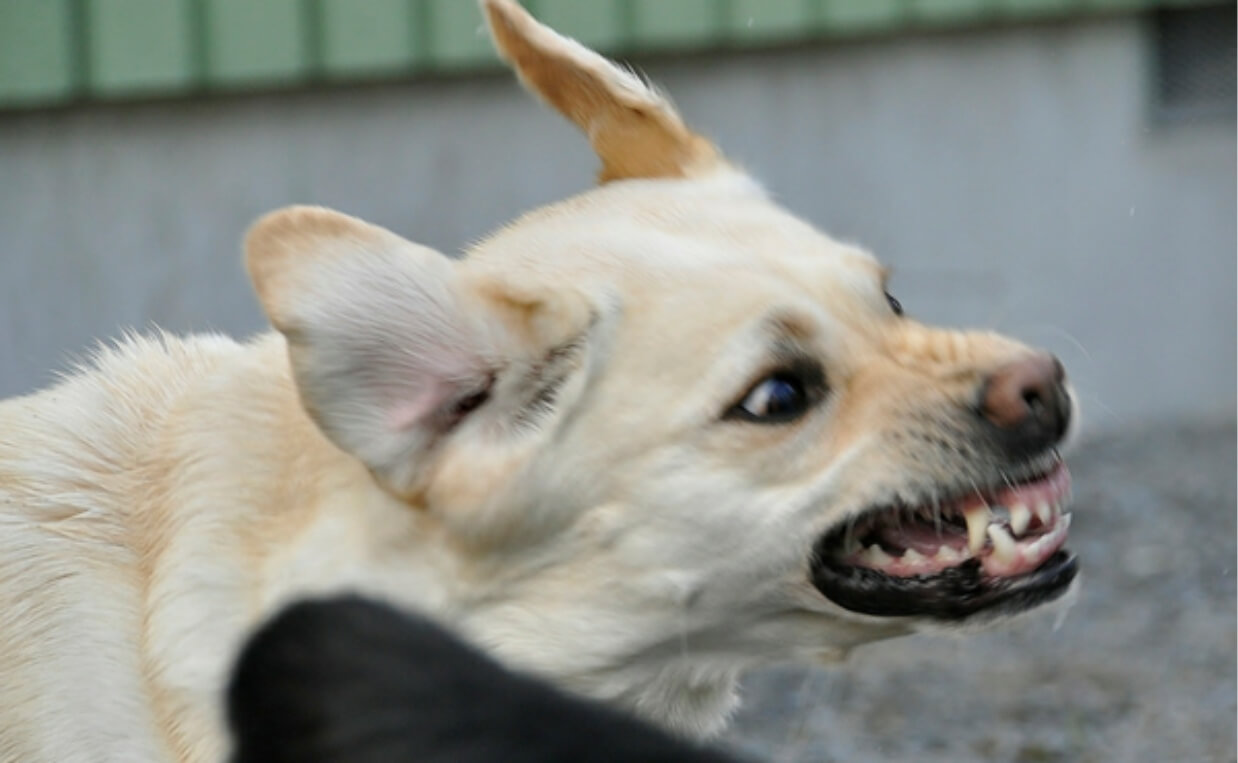
What To Do If Your Dog Bites You or Someone Else
-
Stay calm
Overreacting can make the situation worse, especially if your dog is reacting out of fear. Yelling at or hitting your dog will just make the situation more dangerous. Put your dog in a separate room while you are tending to the wound to give your dog time to calm down.
-
Tend to the wound
The biggest problem with dog bites is the risk of infection. Dogs carry a lot of bacteria in their mouths, and even a seemingly minor bite can become infected if left untreated. If your dog bites someone hard enough to break the skin, make sure you wash the area with soap and water. Don’t use peroxide or alcohol since these can destroy healthy tissue, which can lead to other problems. Apply pressure with a clean cloth to slow down bleeding. Apply an triple antibiotic ointment to protect against infection.
-
Go to the doctor
The person who was bitten needs to be seen by a doctor. The risk of an infection is high with a dog bite, so it is recommended the person bitten be seen within 8 hours of the biting incident.
Be sure to bring your dog’s vaccination record with you. You may need to prove your dog has his or her rabies shot. Also, the victim may need a tetanus shot if it’s been a while since they last had one. Antibiotics are routinely prescribed and a rabies protocol may be started if your dog isn’t current on his or her rabies vaccination.
If the wound becomes red or swollen, a fever develops or the pain gets worse, the person who was bitten may need to see the doctor again. These are signs of infection which can lead to amputations or even loss of life if left untreated.
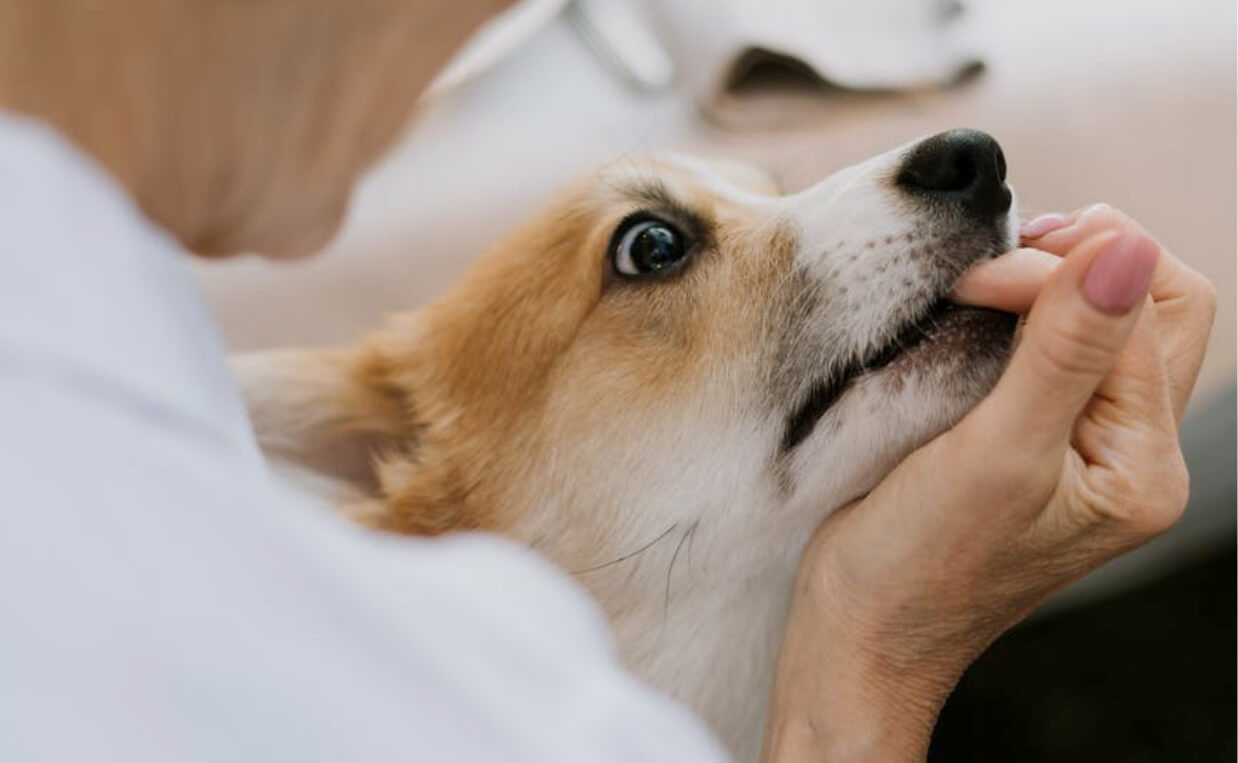
-
Figure out why the bite happened so it can be prevented in the future
Once the situation has calmed down, try to figure out what caused the dog to bite. This is a crucial step so you can prevent the dog from being put in a situation where he or she bites. Failing to address the root cause of your dog biting can lead to another bite which could be even more severe than this one.
First, have your dog examined by a veterinarian to determine if there could be an underlying health issue causing pain. Then, discuss your dog’s biting behavior to determine if you need professional help.
Final Thoughts
There is no guaranteed cure for a dog who exhibits aggressive behavior. With management and behavior modification, many dogs can learn to be more tolerant and not bite again. However, it is important that you learn how to support your dog and avoid placing your dog in a situation where he or she feels challenged. Never leave a dog alone with a young child, even if the dog has never shown signs of aggression.
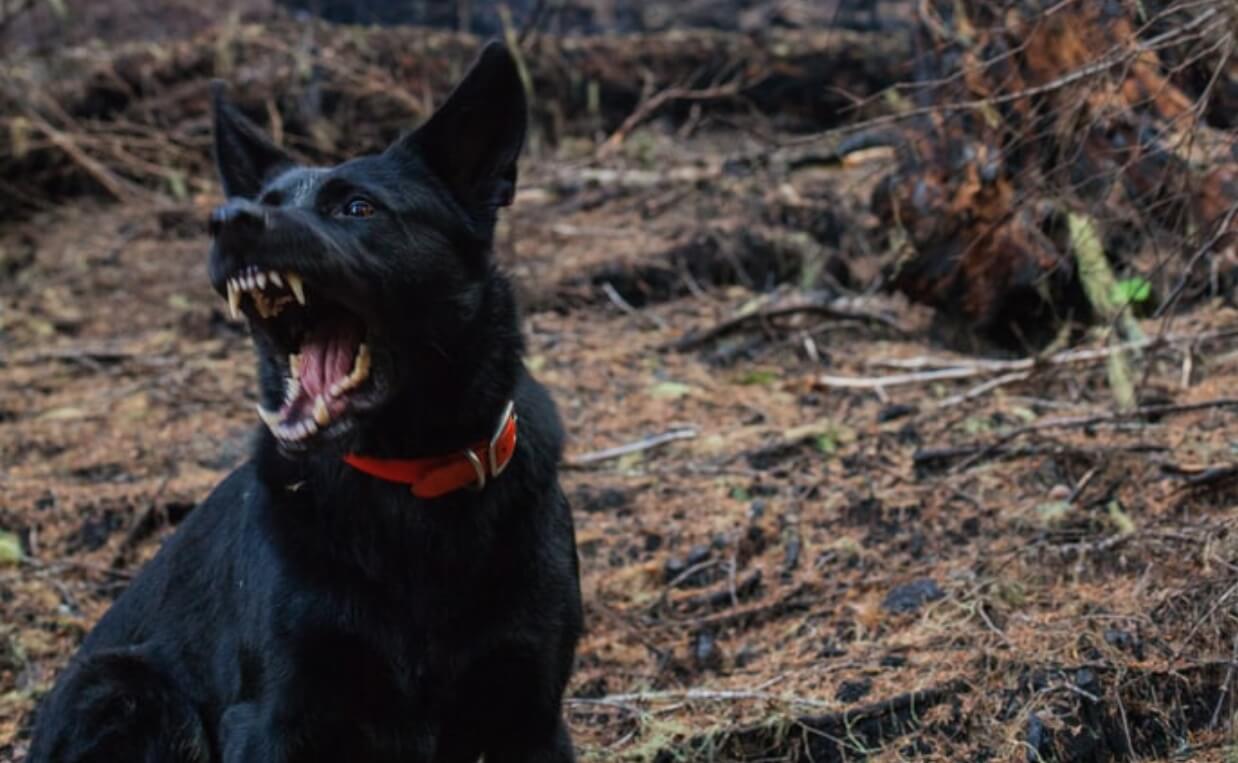
Has your dog bitten you or someone else? How did you deal with the situation? Please share in the comments below…

 6 Strange Dog Behaviors Explained
6 Strange Dog Behaviors Explained Dog Socialization During the COVID-19 Pandemic
Dog Socialization During the COVID-19 Pandemic Why Do Dogs Love Belly Rubs?
Why Do Dogs Love Belly Rubs? How Service Dogs Reduce PTSD Symptoms: Unleashing the Healing Bond
How Service Dogs Reduce PTSD Symptoms: Unleashing the Healing Bond Does Your Dog Know You Love Him or Her? Here’s How to Tell
Does Your Dog Know You Love Him or Her? Here’s How to Tell






My Chi mix, little guy, Redd Fox, was a street dog (for however long he was there no one knows) he has exaggerated startle response.
He also is very insecure and timid around people that he “knows”
Stress=fear=aggressive towards all people.
He HATES delivery men and goes crazy when they are out side.
He seems to be more favorable towards women.
I’m using a Calm/Safe training style, no punishing, only a soft command. No hitting or yelling (he’s frightened enough)
Treats for good performance, affirmations and congratulations
He has become good on the leash and in the home he is a jewel. He is so affectionate and a real “lap dog” sleeping mate.
I’m betting, with gentle training, he’ll be a great, confident, trusting dog (with some socializing)
(Since he was an abused dog he may have permeant nervous system damage as far as where he stores his memory)
I’m goning to have a wonderful companion, room mate, friend who trusts me and I trust him.
btw he really does look like a fox, hence the name (and joke) Redd Fox.
It sounds like Redd Fox hit the lottery when he became yours! Thanks for sharing your experience. May you have many years of happiness together!